Best Books
by Powell's Staff, November 15, 2023 9:25 AM
Best Fiction of 2023 | Best Graphic Novels of 2023 | Best Horror of 2023 | Best Romance of 2023 | Best Science Fiction & Fantasy of 2023 | Best Kids' and YA of 2023
If there’s one thing you know you can rely on, it’s the good taste of Powell’s booksellers, which is soundly reflected in this year’s collection of nonfiction books that we thought were the best from this past year. On this list, you’ll find bookstores and hot dogs, doppelgangers and wolves, celebrities and shitty crafts. These books explore questions of identity, belonging, community, resistance, capitalism, colonialism, to name just a few of their topics; they’re tender and hilarious and heartfelt and insightful and wise and just so, so good. We promise.
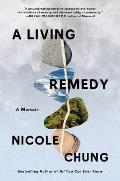 by Nicole Chung
by Nicole Chung
Oh, I was so lucky and grateful to read the advance reader copy (ARC) of this book last year. Chung has written another beautiful book about the hardships of life, this time focusing on the American healthcare system, the loss of her parents a few years apart due to various health issues, and what it means when a child parents a parent in the last stages of their life. I managed to hold it together until a scene where Chung's mother calls her on the phone for a special occasion. This book is perfectly layered, and I think that it's going to resonate with everyone. It is a work of art. — Katherine M.
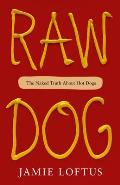 by Jamie Loftus
by Jamie Loftus
Do you know the Maurice Sendak story about loving something so much you eat it? (Please look it up, I will not do him justice.) I thought of this story a lot while reading Raw Dog — both because I loved it SO MUCH, and because Jamie Loftus approaches everything with the abundant, honest, chaotic (complimentary!!) energy of loving something so much you have to make it a part of yourself. This book is decidedly about hot dogs (their cultural impact, how the sausage is made, how the myth of the sausage is made [and who it serves], so many disgusting but also mouth-watering descriptions of so many hot dogs and regional specialties), but it's also about the context of hot dogs — road trips and relationships, labor and pandemics, specific strains of hot dog enthusiasm (competitive eaters! Wienermobile drivers!), and unhinged branding decisions for gendered pickled foods. I cannot recommend it enough!! — Michelle C.
"The Jamie Loftus Hot Dog Book," as my coworker and I have taken to calling it so we don't get fired, is exactly the kind of deep dive microhistory I live for. Loftus invites her reader along on a cross-country culinary road trip, during which she consumes an absolutely horrific amount of encased meat while exploring the history, politics, production (heed the content warnings here), regional varieties, and culture of hot dogs. Learn about competitive eating, Wienermobile drivers, and the mystifying phenomenon that is gender pickles. Discover even more reasons to rage about capitalism. Find out which Portland, Oregon hot dog made Jamie's Top 5! This smart, funny, gross, and exceedingly thorough book is a wiener winner. — Tove H.
For more, check out the Q&A that Jamie Loftus did for the Powell's blog.
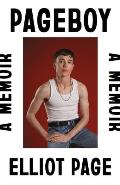 by Elliott Page
by Elliott Page
The first time I saw Elliot Page, I was a teenager watching Juno. I wasn't sure if I had my first celebrity crush, or perhaps if I had found someone I wanted to be more like. Years later, we both came out as transgender at around the same time. I read Pageboy in only a few sittings, as I was so eager to read about his experience. Elliot recounts his multiple coming-out scenarios in such a visceral and relatable manner. His story is incredibly real and surreal all at once. I highly recommend to readers who enjoyed We Both Laughed in Pleasure By Lou Sullivan and I'm Glad My Mom Died by Jennette McCurdy. — Rin S.
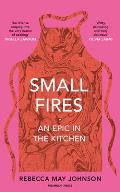 by Rebecca May Johnson
by Rebecca May Johnson
No one expected (and by no one I mean me) the world of food writing to be shaken up so violently. Rebecca May Johnson has properly ensured that I will read anything she writes from here on out. Small Fires put me back in the kitchen. Not just physically, but spiritually. I'm back in my kitchen. I'm making messes. My cookbook pages are splattered with little gluttonies. Food is by no means too good for words, and Johnson's are too perfect a pairing. Read this book or else. — Stacy Wayne D.
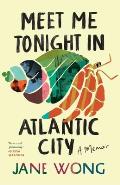 by Jane Wong
by Jane Wong
Jane Wong's poetry has already established her as one of our finest writers at the intersection between food, family, and identity. Her memoir delves even more vulnerably into this vein, exploring what it means to grow up as a working-class artist swirling between depths of care (from friends, family, and sliced fruit) and carelessness (from boyfriends, family, and food bloggers). With playful free-associative prose and a multiplicity of styles and tones, she resists any simple linear narrative of her experience. Highly recommended for anyone who has ever felt saved by someone you love feeding you something delicious. — Kai B.
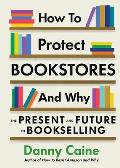 by Danny Caine
by Danny Caine
Danny Caine's How to Resist Amazon and Why — first published as a 15-page zine in 2019 and now in its second edition as a full-fledged book — was a game changer for me as a consumer, and continues to be an absolute gift for me as a bookseller. I often refer to it as, "the hours-long conversation I wish I could have with every customer, in book form," so my bookseller heart leapt with joy when I heard he had something new in the works, about something very dear to said bookseller heart: bookstores. Caine is one of the industry's most passionate and vocal advocates, and his forthcoming book is sure to give readers the info and inspiration they need to become advocates themselves. (He of course gets an extra gold star for teaming up again with Portland's own Microcosm Publishing!) — Tove H.
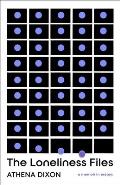 by Athena Dixon
by Athena Dixon
Look: there was no way I wasn't going to love this thoughtful essay collection about loneliness (a feeling that's both uniquely isolating and universal)! Athena Dixon is an actual poet, who mixes history, personal stories, pop culture, and more into an absolutely stunning exploration of the self and society; of modern loneliness and what it looks like to be never-alone (see: The Algorithm) but frequently lonely (see: Scrolling The Algorithm). This book will genuinely change your life. — Michelle C.
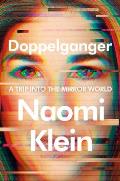 by Naomi Klein
by Naomi Klein
Naomi Klein, author of The Shock Doctrine, among others, has long been an author with a firm foothold in the progressive world with books about climate change, disaster capitalism, and shock politics. In recent years, however, she’s found herself often being confused with Naomi Wolf, an author whose politics were liberal until a shift toward the right got her more attention and media time. Doppelgänger explores Klein’s discomfort with this double (a double who becomes a frequent guest on Steve Bannon’s podcast, no less), while also exploring how so many people who claim to be liberal were moved so far to the right in the midst of COVID. Klein is an incredibly intelligent, canny writer, especially about topics that are nuanced and often difficult to parse (a deliberate tactic on the right’s part!). This book was a huge undertaking and, I suspect, will be a very important book in the years to come, as the “mirror world” continues to infect the world around us. — Kelsey F.
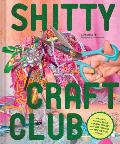 by Sam Reece
by Sam Reece
I’m obsessed with this hilarious, feel-good craft book! Crafters are often perfectionists, and it’s good to be reminded why we got into craft in the first place — the pure joy of making (shitty) things! Any crafter you know will get a huge kick out of this delightful book. — Leah B.
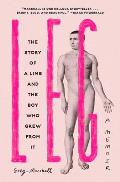 by Greg Marshall
by Greg Marshall
Reading Marshall's memoir reminded me of why I love this genre in the first place. You go into the book expecting one thing (a coming-of-age story alongside Marshall's coming-out story) and then you finish the book examining what it meant for him to have to come out twice: the second time as a gay man with cerebral palsy, which is something that his parents decided not to tell him about, instead telling him that his limp and other various conditions were due to his "tight tendons." By the end of the book, you'll love Greg and his kooky family like your own because there's really something so special and loving about them. This one is perfect for fans of David Sedaris! — Katherine M.
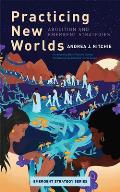 by Andrea Ritchie
by Andrea Ritchie
Lawyer and activist Andrea J. Ritchie presents an important new entry into the Emergent Strategy series of books, which started with the titular title by adrienne marie brown, who provides an introduction here. In Practicing New Worlds, Ritchie looks at the ways we can learn from the movements happening around us, unlearn the practices that no longer serve us, and transform how we live in the world, in order to adapt and build a better world that more successfully serves the collective. — Kelsey F.
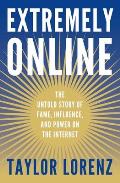 by Taylor Lorenz
by Taylor Lorenz
You know how every so often the internet collectively freaks out about how less time separates us from Tyrannosaurus rex than separated T. rex from Stegosaurus? I thought about that a lot while reading this sociological/historical deep dive into the digital culture of the influencer era. The timelines are wild! Vine, so foundational, there and gone in an instant. Facebook, cool for a second, terrible for the rest of time. Tumblr It girls. Vidcon in a time before influencers needed security or were even called influencers. Advertising turned sponsored post. Moms trying these new things called ‘blogs’ and realizing their personal lives could be commoditized. A persistent feedback loop of technology innovation, user adoption forcing technology evolution, followed by profit models and profit seekers. We’re talking less than twenty-five years here! (Less than twenty of that with smart phones in the picture!) Lorenz has told this story and told it well — it's easily one of my top books of the year and I’ve roped a whole gaggle of friends into book groups about it. If you’re already “Extremely Online,” some of it will be memory lane and some of the connections and “omg that was x person?!” will send you spiraling. If you’re only on the fringes of internet culture (or so new to internet culture that this is somehow all… stegosaurus-style ancient history), it’s an excellent primer on “how the heck did we get here." — Sarah R.
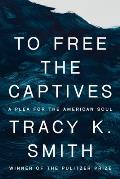 by Tracy K. Smith
by Tracy K. Smith
Pulitzer Prize winner and former Poet Laureate of the United States Tracy K. Smith's new book blends lyric memoir, historical documentation, and testament of spiritual practice. Responding to our nation's continued legacy of violent anti-Blackness, she delves into her family history, not only through her ancestors' experiences of racism but of community, resistance, hope, and resilience. She states: "What this process has led me to believe is that all of us, in the here and now, can choose to work alongside the generations that precede us in tending to America’s oldest wounds and meeting the urgencies of our present.” I'm so grateful for this vital, tender book. — Claire A.
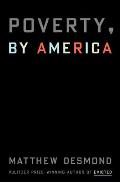 by Matthew Desmond
by Matthew Desmond
Poverty, by America is the newest book from Matthew Desmond, the Pulitzer Prize–winning author of Evicted. Here, he digs deep into poverty: how firmly entrenched it is in our society, the negative affects it has on anyone living in poverty, how the lives of people of color are disproportionately affected, and the very realistic steps we could take to eradicate poverty. Turns out: it’s possible! No matter what our government would have us believe. It won’t be an easy path, but it’s one that’s well worth fighting for, and Matthew Desmond’s work serves to make that path just a little bit more clear. — Kelsey F.
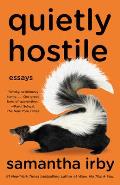 by Samantha Irby
by Samantha Irby
When I read this in bed before turning in for the night, I had to stifle my laughter to not wake up my boyfriend. Every essay is like talking to that one friend who always has an outrageous story to tell you while making you do that weird no-sound laugh. — Vicky K.
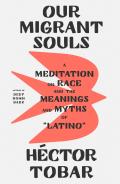 by Héctor Tobar
by Héctor Tobar
Our Migrant Souls is a thought-provoking, incisive look at what it means to be Latinx, from novelist and Pulitzer Prize–winning author, Héctor Tobar. Tobar's lens here is wide sweeping: he looks at racist narratives in pop culture; he travels across the country and explores Latinx enclaves in otherwise white communities; he writes about his own experience as a son of Guatemalan immigrants. Throughout it all, he takes on capitalism, the construction of race, colonialism, and what it means to be a member of a community that is still consistently othered. Our Migrant Souls is an incredibly important new book. — Kelsey F.
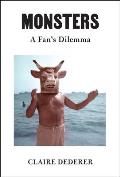 by Claire Dederer
by Claire Dederer
In the introduction to Monsters, Claire Dederer recollects an adage from poet William Emerson, "life involves maintaining oneself between contradictions that can't be solved by analysis." Dederer wants to know what to do with bad behavior — monstrous behavior — and good — even excellent — art. Can the audience think themself out of that contradiction? Can they feel their way out? Do they just have to sit there… maintaining? What do we (you, I) do with the personal feelings of betrayal? What about the amplified echoes of collective outrage? I can imagine no finer voice to walk through this contradiction alongside. In Monsters, Dederer is insightful, passionate, funny, and somehow managed to re-enliven the conversation about separating artist and art into something fresh and vital. — Sarah R.
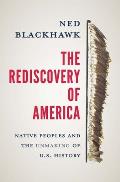 by Ned Blackhawk
by Ned Blackhawk
Historian Ned Blackhawk has written an important, necessary book that centers Indigenous peoples in our nation’s history, asking the vital and contradictory question about how a nation can be a democracy when it was created after dispossessing Indigenous peoples of their land. Blackhawk’s central argument is that, despite this dispossession, Native Americans have been an important part of America’s history. Blackhawk revisits the important moments in our history (the colonial era, the Revolutionary War, the introduction of the transcontinental railroad, etc) and looks at them through the lens of how these moments affected Native Americans, but also how Native American affected each of these moments. This is a vital text. — Kelsey F.
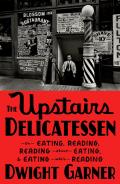 by Dwight Garner
by Dwight Garner
Oh, to move through life reading and eating, learning and savoring, absorbing and indulging. Food and books go together, even if bits of gluttonies stain their way onto the pages. The Upstairs Delicatessen is one of those wholly human books that will ensure a proper laugh and a heartfelt cry. If you're in need of a book that nurtures the human spirit through the power of food, you've found it. And thank goodness you have. — Stacy Wayne D.
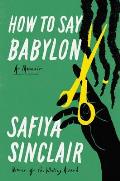 by Safiya Sinclair
by Safiya Sinclair
Memoirs written by poets are my absolute favorite type of memoirs and How to Say Babylon is a stunning contribution to its genre. This is a captivating story of Sinclair's struggle to break free of her strict Rastafarian upbringing in Jamaica and reclaim her agency both as a woman and a poet. Sinclair's Cannibal is one of my favorite books of poetry and I was beyond excited to read her memoir. She is an immensely skilled writer whose lyricism shines in every sentence. — Antonia S.
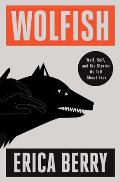 by Erica Berry
by Erica Berry
The subtitle to Erica Berry’s recent release, Wolfish, says it all: “Wolf, Self, and the Stories We Tell About Fear.” Wolves have long been the “bad guys” in our fairy tales — the creatures blowing our houses down or hiding in our grandmother’s skins. In Wolfish, Berry follows OR-7, a legendary wolf wandering through northeast Oregon. From there, we travel with Berry from 17th century Europe to Berry’s grandfather’s sheep farm, from Little Red Riding Hood to the Boy Who Cried Wolf. Wolfish is a howling, compelling read. — Kelsey F.
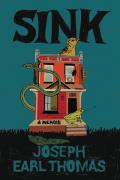 by Joseph Earl Thomas
by Joseph Earl Thomas
When I interviewed Thomas about his memoir, Sink, he mentioned that one of the reasons why he wrote it was because he wanted to share a story about a child who grew up in unfortunate circumstances where the child didn't end up as a celebrity or influential person in an outright sense. Thomas didn't grow up to be a Supreme Court Justice or famous basketball player, but that's what makes his story more interesting. It is a story about a curious and sensitive young Black boy who does nothing more than survive all of the trauma that is thrown at him. Thomas has written an intimate and heartbreaking tale that is surprisingly funny and touching all at the same time. While he may not have become President, Thomas became something that I would argue is more important: a writer who takes the time to acknowledge the past. — Katherine M.
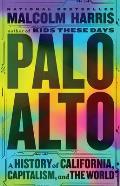 by Malcolm Harris
by Malcolm Harris
Malcolm Harris is back, with an ambitious history of Palo Alto (both as a case study for the world, and for how it has uniquely influenced the course of human history — or, the subtitle is A History of California, Capitalism, and the World). You might remember his previous books, Kids These Days: Human Capital and the Making of Millenials and Shit Is Fucked Up & Bullshit: History Since the End of History. Palo Alto continues his hot streak of stellar work. Harris argues that the speed of change in California (move fast, break things) is not a tech startup invention, and makes a case for why history has unfolded the way it did and what we could change to build a better world. It feels wild to call this 720-page tome "immensely readable," but it is! Harris has deeply researched and developed his analysis of 170 years of history, and synthesizes it with skill into prose that's both understandable and a joy to read. — Michelle C.
|